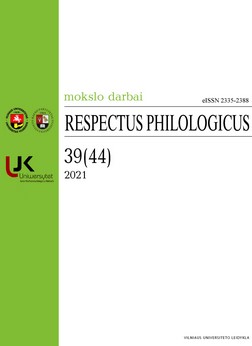Stephen Dixon’s Novels: Autobiographicality as Transgression
Stephen Dixon’s Novels: Autobiographicality as Transgression
Author(s): Yuliia Honcharova, Victoriia LipinaSubject(s): Comparative Study of Literature, Theory of Literature, American Literature
Published by: Vilniaus Universiteto Leidykla
Keywords: postmodernism; transgression; Stephen Dixon; auto/bio/graphicality; I.-texts; a fiduciary subject;
Summary/Abstract: The idea advanced in the paper is to theorize the mechanisms of autobiographicality in Stephen Dixon’s novels that are viewed as a radical renewal of autobiographical narrative, where the modality of disappearance/return of the subject produces a new mode of life-writing. We propose the term “autobiographical transgression” to capture the essence of this renewal started by three representative figures – John Barth, Stephen Dixon, and Joseph Heller that can be reduced neither to autobiography as a genre, nor to “transgressive autobiography” as its generic variant. Dixon finds a new form for representing autos. He creates the character with the name-deixis I. that personifies a fiduciary subject, thus, suggesting a provocative restatement of postmodernist generic problems. In the novels I. and End of I. the autobiographical hero I. exists simultaneously as a metaphor of the author’s presence in the text, as the subjective author’s I and as a character in the novel − an objectified, semi-functional, distancing I. The transplanting of life experience manifests itself in a special kind of repersonalization and double coding of the traditional autobiographical subject.
Journal: Respectus Philologicus
- Issue Year: 2021
- Issue No: 39(44)
- Page Range: 89-100
- Page Count: 12
- Language: English

